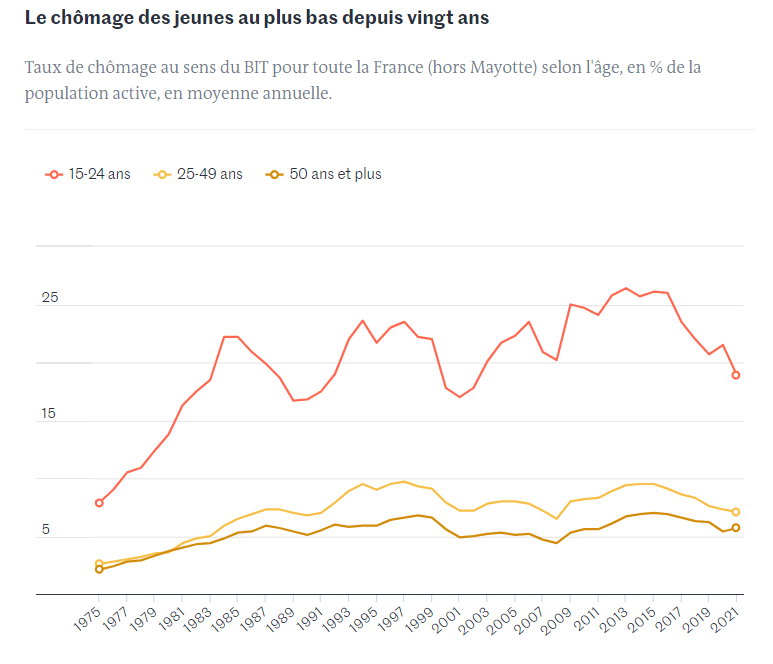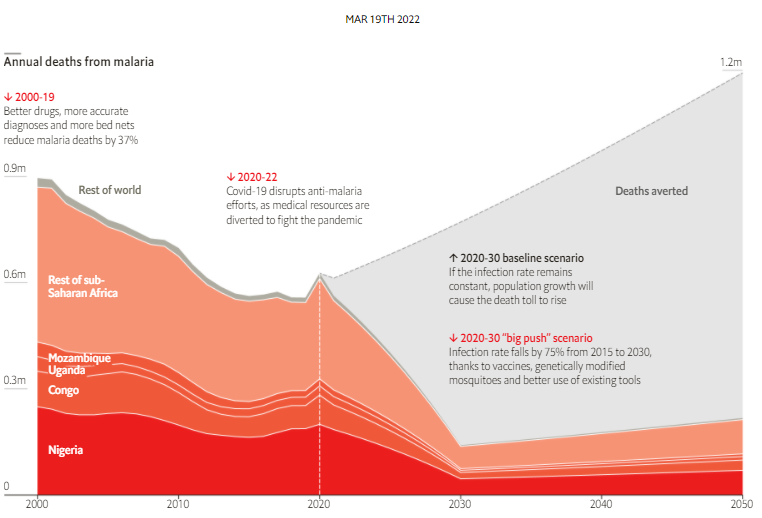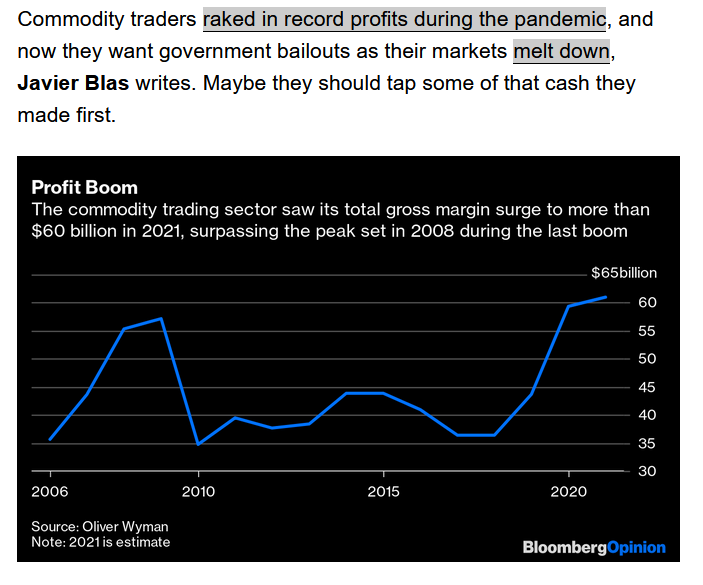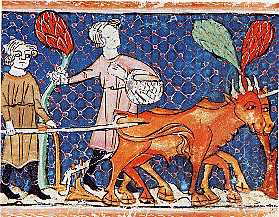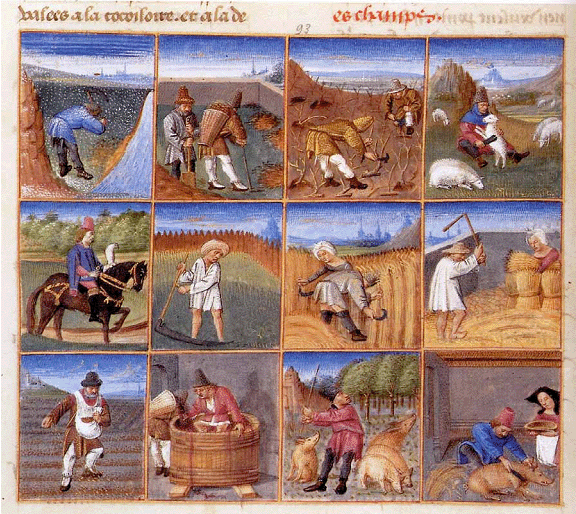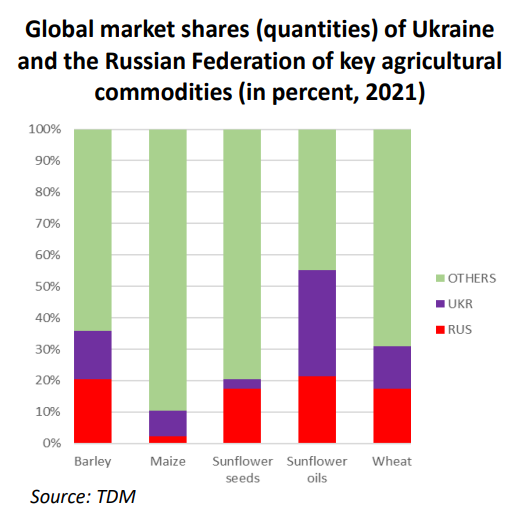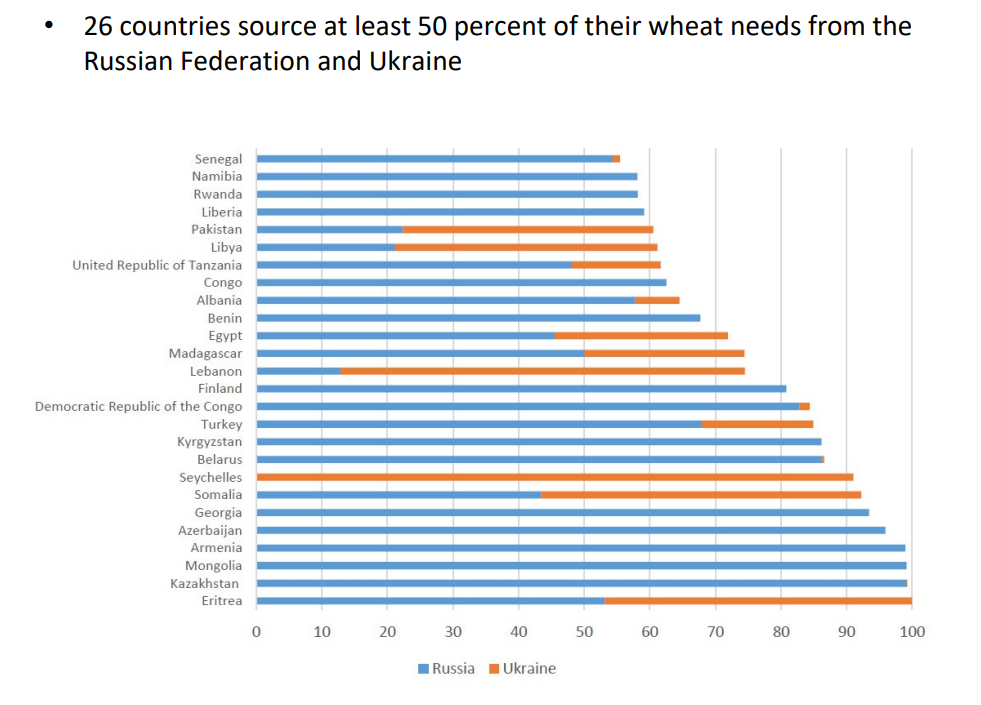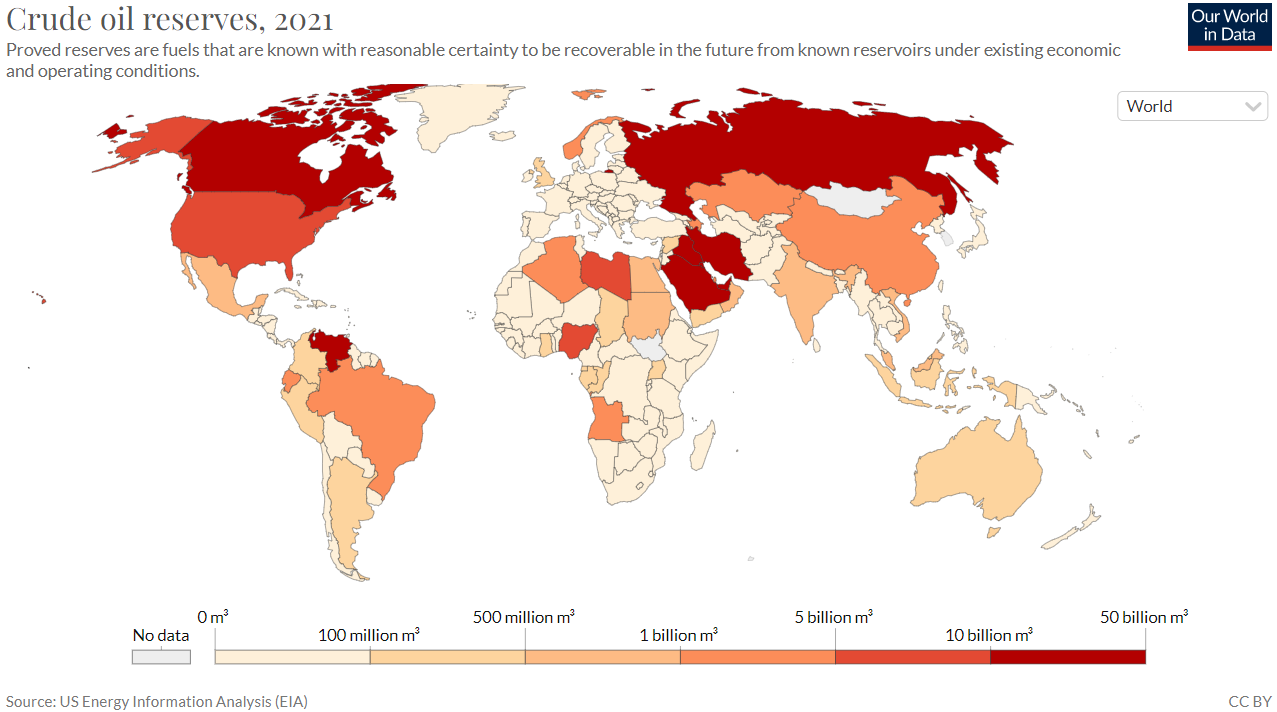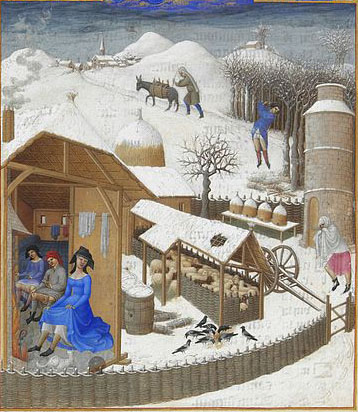|
You
can also view the message online
|
||||||||||||||||
 Châtenay-Malabry (FR - 92290), March 28, 2022 EFITA newsletter / 1032 - European Federation for Information Technology in Agriculture, Food and the Environment Do not miss the Virus Jokes in English and French The informatique-agricole.org site now offers you the possibility of subscribing the RSS feeds of its two newsletters See RSS feeds to implement to ensure that you continue to receive this newsletter To unsubscribe this newsletter, please contact me directely: guy.waksman(a)laposte.net if this link Unsubscribe does not work. Please note that I changed the presentation of the links that are embedded in the name of the web service. 
To correspond with me (GW), please use this address: guy.waksman(a)laposte.net To subscribe the efita newsletter (please ask your friends and colleagues to test this link) Efita Newsletters subscription Before computers Weekly newsletters about ICT in Agriculture in English and French Both newsletters have around 14000 subscribers. >>> Last weekly EFITA Newsletters in English (created in 1999) Efita Newsletters >>> Last weekly AFIA Newsletters in French (created more than 20 years ago in 1997) Afia Newsletters >>> Statistics for the last efita newsletter >>> Last issue of the afia newsletter >>> Last available satistics for the afia newsletter To the EFITA / Green Telematics / ICT for Agriculture Community Death of Mick Harkin Michael (Mick) HARKIN of Killiney and formerly of Monkstown, Co. Dublin, died peacefully on 23rd March, 2022. Beloved husband of Annette, sadly missed by his sons Niall and Miki and their mother Una, grandchildren, great-grandchildren, brother Niall, extended family and a wide circle of friends. Reposing at Colliers Funeral Home, Old Connaught Avenue, Bray on Friday (25th March) from 3.00pm to 5.00pm. Funeral Service on Saturday (26th March) at 10.00am in the funeral home, followed by burial in Shanganagh Cemetery. NB: He had had Parkinson's disease for several years and spent the last year or so in a care facility. Contact: Val REILLY E-mail: reillyval(a)gmail.com My message to Val (GW): Please tell my heartfelt condolences to Mick's family. Mick gave a much appreciated contribution to farm Informatics for many years with his participation in the creation of EFITA and in a number of congresses and seminars about farm informatics. I was impressed by Mick's vitality, his understanding of farmers, farm economics and ICT, and of course his sense of humor. He will have been a faithful and reliable friend. I will miss him. To the Ag Stats community Death of Pierre Dagnelie, Associate Member of the French Ag Academy, famous author of a famous manual about ag experiments and stats Dears, I am sad to announce the death on March 12, 2022 of my father, Professor Pierre Dagnelie. He left us as he lived, with dignity, surrounded by the love of his grandchildren and loved ones, after an extraordinarily rich and fulfilled life. Spare a thought for him. Thanking you, Contact: Thierry DAGNELIE E-mail: thierry.dagnelie(a)gmail.com Les taches des vignerons, Psautier fait en Normandie, La Haye / The tasks of the winegrowers, Psalter made in Normandy, The Hague Farmers, draw me a robot Farmers are key players in the introduction of agricultural autonomous machines. Either they are already practicing / experiencing the use of robots or only wondering what they could expect from them, the industry needs farmers’ visions and feedbacks. First, farmers are as different as the different crops and farm sizes. What farmers and users does robotics interest? In a short term, let’s say next year, how do they imagine a robot could help their production? What kind of functionalities? For what value? What business model? In « Draw me a robot », speakers will also explain how they are expecting to use their robot, who is the final user and thus, what they expect in terms of Machine Design (user experience, ergonomy, efficiency...). See fira-agtech.com Have a million-dollar idea to shape the future? Submit it to The Liveability Challenge today!, AgFunder, Temasek Foundation & Eco-Business 14 January – 1 April 2022 The Liveability Challenge is back on a search for innovative solutions to combat urban challenges of the 21st century! As the world’s population is expected to increase to 10 billion by 2050, current infrastructure and resources are straining to catch up. How can we live sustainably and within our planetary boundaries? From 14 January to 1 April 2022, The Liveability Challenge will be accepting disruptive, game-changing solutions that will help cities accelerate decarbonisation, meet increasing demand for food, and conserve our planet’s natural ecosystems. Finalists stand a chance to secure the grand prize of up to S$1 million in grant funding for project development by Temasek Foundation and a minimum of S$100,000 investment by Amasia, PlanetRise, Purpose Venture Capital, Quest Ventures and Silverstrand Capital! …/… Be part of The Liveability Challenge Tech Hub LIVE is Back By Popular Demand July 20-21, 2022 - Indiana Convention Center - Indianapolis, Indiana Early bird registration available soon. See techhublive.com Vendemmia, mosaico nel Mausoleo di Santa Costanza a Roma , IV secolo
Le chômage des jeunes, au plus bas... / Decline in youth unemployment in France The end of malaria / Plus de malaria, enfin, grâce au vaccin Marieles Dinner - Funny Dog eats elegant at table - Le dîner de Mariele - Chien drôle mange à table Voir vidéo
The autonomous John Deere from a farmer’s perspective: Part IV See futurefarming.com SteadySteer, Pass-to-pass accuracy - right from your steering wheel. See agleader.com When the Going Gets Tough, the Tough Get Data EarthDaily Agro's Dave Gebhardt discusses why he believes a collaborative approach in data management is so important to working with customers. See precisionag.com
Agmatix Launches New Agricultural Data Technology Platform to Support Sustainable Food Production New Agmatix technology creates a single engine that translates crop science into real life actions by digitizing research data. See precisionag.com Ceres Imaging Announces Integration Partnership with Sentek Customers will now be able to view irrigation management data from both companies, side by side on the Ceres Imaging app. See precisionag.com Ceres Imaging Announces Integration Partnership with Sentek Customers will now be able to view irrigation management data from both companies, side by side on the Ceres Imaging app. See precisionag.com ASABE to Develop Standard on Mapping Yield, Associated Data The American Society of Agricultural and Biological Engineers is developing a standard for the processing of data files containing geographic harvest data. See precisionag.com AEF Makes Agtech History with Next-Generation ISOBUS High-speed ISOBUS demonstrated for first-time at AEF Plugfest during Commodity Classic. See precisionag.com Araire au Moyen-âge Miccle Age Plow FutureFarming.com > Power to the battery, or not? This year certainly won’t be the first year in which electric tractors are introduced. 2022 will however be the first year in which the first factory-made electric farm tractors will be sold. And it’s not the obvious brands who are the pioneers! > Robot with IDS camera eliminates the need for herbicides An intelligent robot has been developed to reduce the use of herbicides in agriculture. Through the use of a robust industrial camera from IDS, the robot has been enhanced further. Read more > Soil analysis: The power of SWAT MAPS A state-of-the-art Canadian soil and moisture analysis system for optimising crop yields called SWAT MAPS is making inroads in North America, South Africa and Australia. Two farmers, one in Montana and one in South Africa, share how they are using SWAT in combination with precision planting, fertiliser application and more. > Autonomous tractors video: John Deere shows autonomous electric tractor John Deere is still working on developing an electric tractor. The newly presented Sesam 2 has a 1,000 kWh battery pack and can operate fully autonomously. > Expert opinion: Unlocking the potential of vertical farming in 2022 and beyond Vertical farming holds immense promise to help meet the demand for better quality fresh produce for the world’s growing population, and offers innovative solutions to some of agriculture’s biggest challenges. Heading into 2022, we’re going to see vertical farming become more mainstream. > Field robots: How to make money with robotic organic food production Pixelfarming Robotics was created to grow organic food for the employees of data technology company Idea-X. Their goal is to produce organic or rather chemical free food for a price comparable to the price of conventional non-organic food. Here’s how they do that. > Autonomy: Raven enhances development in AI, autonomy and machine learning Raven has opened a new engineering center in Scottsdale, Arizona (U.S.) to accelerate the advancement of its ag technology and is planning an investment in the expansion of its Innovation Campus. > PepsiCo and N-Drip aim to make drip irrigation accessible Irrigation: PepsiCo and N-Drip aim to make drip irrigation accessible. Global beverage and convenient foods company PepsiCo and N-Drip have announced a partnership to help farmers around the world adopt drip irrigation technology across 10,000 hectares (25,000 acres) by 2025. > Video: Retrofit kits to make your tractor autonomous In this video, six autonomous retrofit kits that are available for purchase are presented to you. By installing the kit, a farmer can upgrade the existing tractor to an autonomous tractor without having to make major investments. See futurefarming.com Tired of waiting for autonomous vehicles? Head to a farm, Associated Press, by Scott McFetridge, March 16, 2022 For years Americans have been told autonomous technology was improving and that driverless vehicles were just around the corner. Finally they’re here, but to catch a glimpse of them, you’ll need to go to a farm rather than look along city streets. Beginning this fall, green 14-ton tractors that can plow day or night with no one sitting in the cab, or even watching nearby, will come off the John Deere factory assembly line in Waterloo, Iowa, harkening the age of autonomous farming. The development follows more than a decade-long effort by the world’s largest farm equipment manufacturer, and marks a milestone for automation advocates, who for years have been explaining why driverless cars aren’t quite ready for prime time. See apnews.com Le calendrier des travaux agricoles au Moyen-âge / The calendar of agricultural work in the Middle Age But the activities of peasants are not limited to those described above. The agricultural calendar below gives an overview of their work throughout the year. - In January, they cleaned the ditches at home. - In February, they spread the manure on the land with a spade and hoe. - In March, they pruned the vines with bill hooks. - In April, they sheared the sheep with scissors (called forces). - In May, the lord hunted falcons. The peasants, meanwhile, were waiting for the moment of harvest... - In June, they mowed the grass with a scythe. - In July, they harvested with a sickle. - In August, they threshed wheat with a flail on the village threshing floor. - In September, they sowed on the fly. - In October, they pressed the grapes with their feet in a vat. - In November, they picked the glands for the pigs. - In December, they killed the pigs. Voir college.saintebarbe.pagesperso-orange.fr
New data explorer on fossil fuels The global distribution of fossil fuels and energy resources has dominated public discussions in recent weeks. In our new Fossil Fuels Data Explorer you can explore country–by-country data on reserves, production, trade, and consumption for oil, coal, and natural gas. Bezos Earth Fund pledges $17m to Colombia’s Future Seeds plant gene bank, AFN, by Jennifer Marston The Bezos Earth Fund will invest $17 million in global food security-focused research partnership CGIAR‘s Future Seeds plant gene bank. The gene bank was inaugurated this week in Colombia to preserve plant biodiversity and support agricultural research. CIGAR’s Alliance of Biodiversity International and the International Center for Tropical Agriculture (CIAT) will manage the new facility, which will also serve as an innovation hub for researchers. What is it? The Future Seeds gene bank will preserve and safeguard crop varieties while also serving as an educational and innovation hub for researchers working to breed new varieties of crops and improve the productivity, resilience, and nutritional value of plants. - The new facility provides 30% more storage than its predecessor, an older CIGAR gene bank that held tens of thousands of crop varieties. - The Future Seeds collection includes more than 37,000 samples of beans from 114 countries; 6,000 cassava samples from 28 countries; and 22,600 samples of tropical forages such as grasses and trees from 75 countries. - The entire global catalog is open source, patent-free, and funded by a mix of governments, multilateral organizations and foundations; plant genetic material is free of charge to researchers breeding new varieties of plants. …/… See agfundernews.com
SupPlant raises $27m to bring irrigation tech to climate-embattled farmers, AFN, by Jennifer Marston Israeli irrigation tech startup SupPlant has raised $27 million for its platform that helps farmers optimize water usage and increase crop yields. Red Dot Capital Partners led the round. Menomadin Foundation, Smart-Agro Fund, Mivtach Shamir, Deshpande Foundation, PBFS, Boresight Capital and Maor Investments also participated. In addition to expansion, funds will go towards building out the company’s new API developed for smallholder farmers around the world battling the impacts of climate change on crops. >>>> Rethinking irrigation The SupPlant system collects data from on-farm sensors and creates real-time irrigation recommendations for growers based on that data. This can help farmers increase yields through optimized water usage, particularly in areas where water supply has been adversely impacted by climate change. Sensors are placed on the ground, track, leaves, foot, and fruit of the plant. The system then collects measurement data on plant size every half-hour and sends it to farmers via a digital dashboard. Changes in plant size can signal when plants are under extreme stress from, for example, a heatwave or insufficient water supply. Armed with this information, farmers can be more proactive about providing plants the exact amount of water they need, when they need it. .../... See agfundernews.com Climate tech will become the next big VC thesis for Latin America, AFN, by guest contributors: Francisco Jardim & Marcella Falcão Climate tech is quickly becoming a mainstream venture investment category worldwide, but is still relatively misunderstood. What follows is a summary describing our understanding of this exciting new space. Let’s start with the basics. Climate tech encompasses a broad range of segments representing the challenge of decarbonizing the global economy, with many countries and companies having set specific goals to reach net-zero greenhouse gas (GHG) emissions by 2050 while preparing businesses for the adverse effects of climate change. Climate tech’s applications can be grouped into three broad sector-agnostic categories: - Direct emissions mitigation or sequestration - Adaptation to the impacts of climate change - Enhancement of our ‘climate understanding’ …/… See agfundernews.com Chinese spies hacked a livestock app to breach US state networks, Wired, by Andy Greenberg Vulnerabilities in animal tracking software USAHERDS and Log4j gave the notorious APT41 group a foothold in multiple government systems. THE web-based software known as the Animal Health Emergency Reporting Diagnostic System, or USAHERDS, serves as a helpful digital tool for state governments to track and trace animal diseases through populations of livestock. Now it's turned out to be a kind of infection vector of its own—in the hands of one of China's most prolific groups of hackers. On Tuesday, the cybersecurity incident-response firm Mandiant revealed a long-running hacking campaign that breached at least six US state governments over the past year. Mandiant says the campaign, which it believes to have been the work of the notorious Chinese cyberespionage group APT41—also known as Barium, or as a part of the larger Chinese hacker group Winnti—used a vulnerability in USAHERDS to penetrate at least two of those targets. It may have hit many more, given that 18 states run USAHERDS on web servers, and any of those servers could have been commandeered by the hackers. APT41 has gained a reputation as one of China's most aggressive hacking groups. The US Department of Justice indicted five of its members in absentia in 2020 and accused them of hacking into hundreds of victims' systems across Asia and the West, both for state-sponsored espionage and for profit. The group’s goal in this latest series of intrusions, or what data they may have been seeking, remains a mystery. But Mandiant analyst Rufus Brown says that it nonetheless shows just how active APT41 remains, and how inventive and thorough it's been in searching for any toehold that might allow them into yet another set of targets—even an obscure livestock management tool most Americans have never heard of. .../... See wired.com How Do You Make Yogurt Even Healthier? Yogurt is considered a nutrient powerhouse, so how do you make it even healthier? ARS scientists studied the potential benefits of a yogurt fortified with heart healthy chickpea flour. See tellus.ars.usda.gov Dangerous levels of glyphosate in urine? Junk science paper based upon a large-scale anti-GMO testing campaign, by André Heitz, and Jon Entine, March 22, 2022 The public and journalists – the consumers of information about health – need to be aware of something that researchers know well – there is no paper that is so dreadful that it cannot be published somewhere. Geoffrey Kabat, cancer epidemiologist, former faculty member at Stony Brook University School of Medicine and Albert Einstein College of Medicine See geneticliteracyproject.org Engineered Bacterial Strains Could Fertilize Crops, Reduce Waterways Pollution, Feb. 15, 2022 Researchers from Washington State University have engineered strains of the ubiquitous, nitrogen-fixing soil bacterium Azotobacter vinelandii to produce ammonia and excrete it at high concentrations, transferring it into crop plants in lieu of conventional chemical fertilizers. “We presented conclusive evidence that ammonia released is transferred to the rice plants,” said Florence Mus, Ph.D., assistant research professor, Institute of Biological Chemistry, Washington State University. “Our unique approach aims to provide new solutions to the challenge of replacing industrial fertilizers with custom-made bacteria.” See asm.org Hiver / Winter Putin's Invasion Challenges Green Aversion to Nuclear Power, by Jonathan Ford Greater political responsibility may force them to reconcile their climate goals with the imperative of security. Ever since the 1970s, European Green parties have argued passionately for cutting carbon emissions from the continent’s energy, while at the same time reflexively shunning the world’s only reliable source of zero-carbon electricity: nuclear power. Russia’s Ukrainian invasion is punching big holes in the logic of this position. That is especially true in Germany and Belgium, countries where the Greens sit in coalition governments committed to the phaseout of all nuclear power. Germany closed three of its last six reactors last year and the rest will follow by the end of 2022. Belgium has promised to close all of its seven units, which generate half its electricity, by 2025. In Germany, the need to replace its heavy dependence on Russian oil and gas at the same time as nuclear is roiling the governing coalition and leading to the bizarre situation where a Green-dominated economic and energy ministry would rather burn dirty coal than operate zero-carbon atomic reactors. …/… See bloomberg.com Ofensiva de Rusia en Ucrania: Preparativos para la derrota, para Francis Fukuyama, 16 mar 2022, El Pais Rusia va camino de perder la guerra, lo que permitirá un “nuevo nacimiento de la libertad” y nos sacará del estado de depresión en el que estamos por la decadencia de la democracia mundial. Las tropas rusas están atascadas en las afueras de varias ciudades ucranias y sufren enormes problemas de abastecimiento y constantes ataques de los ucranios. .../... Putin no sobrevivirá a la derrota de su ejército. Si tiene tantos apoyos, es porque lo ven como un hombre fuerte. ¿Qué podrá ofrecer cuando quede demostrada su incompetencia y se le haya despojado de su poder de coacción? .../... Ver elpais.com Labours dans "Les Très Riches Heures" du duc de Berry
The distribution of this efita newsletter is sponsored by vitisphere.com Please, contribute to the content of your efita newsletter, and advertise your events, new publications, new products and new project in this newsletter. Without your support, it will not survive! Contact: Guy WAKSMAN E-mail: guy.waksman(a)laposte.net To read this newsletter on our web site See Efita The archives of this newsletter See Efita About the EFITA mailing list You can use the efita moderated list (> 15000 subscribers) to announce any event / product / web site / joke (!) related to IT in agriculture, environment, food industry and rural areas. If you want to subscribe a friend, please fill in his form. If you do not wish to receive our messages, please fill in the following form... |





